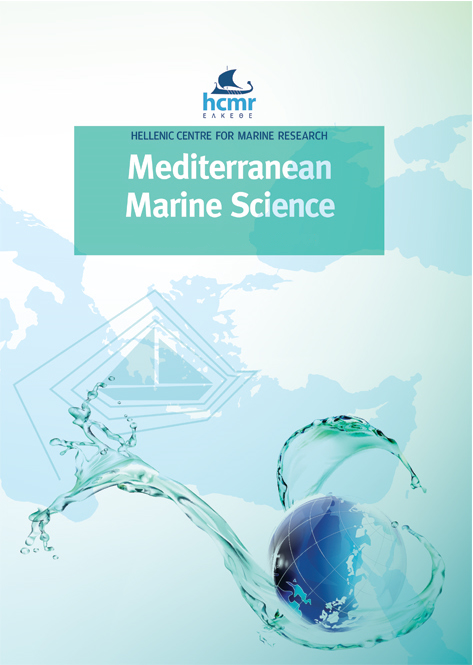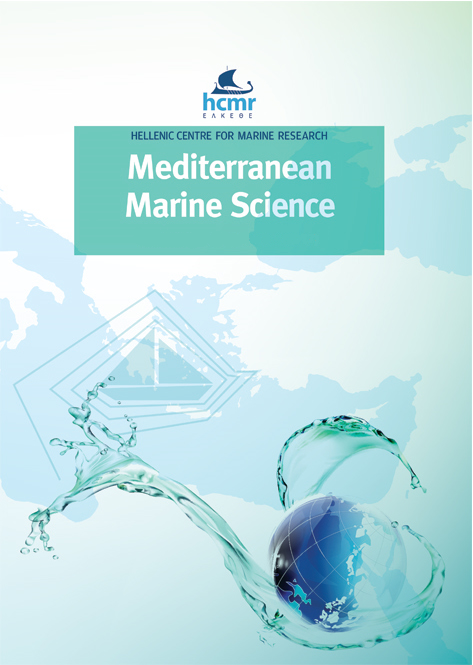The spread of the non-indigenous species Bregmaceros nectabanus Whitley, 1941 (Osteichthyes: Bregmacerotidae) in the eastern Mediterranean
Abstract
This study reports the first record and some features of two individuals of the Lessepsian migrant species smallscale codlet, Bregmaceros nectabanus, found in the stomachs of two individuals of European hake, Merluccius merluccius, sampled in the northern Ionian Sea (eastern Mediterranean) during the MEDITS International Bottom Trawl Survey. The two European hake were collected on muddy bottoms in September 2021 at 63 m depth (39.34950 ºN; 16.52350 ºE) and at 240 m depth (39.07156 ºN; 17.12626 ºE). Their morphological traits together with otolith and scale characteristics allowed the identification of the two specimens found in the stomachs as B. nectabanus. The analysis of the stomach contents for the larger individual is also reported. This finding underlines the utility of stomach content analysis as an indirect method to study the biodiversity of deep-sea ecosystems, including the spread of non-indigenous species as indicators of global warming.
Article Details
- Come citare
-
CAPEZZUTO, F., TURCO, C., GALASSO, G., SION, L., & D’ONGHIA, G. (2024). The spread of the non-indigenous species Bregmaceros nectabanus Whitley, 1941 (Osteichthyes: Bregmacerotidae) in the eastern Mediterranean. Mediterranean Marine Science, 25(1), 67–72. https://doi.org/10.12681/mms.35429
- Fascicolo
- V. 25 N. 1 (2024): VOL 25, No 1 (2024)
- Sezione
- Short Communication
Authors who publish with this journal agree to the following terms:
- Authors retain copyright and grant the journal right of first publication with the work simultaneously licensed under a Creative Commons Attribution Non-Commercial License that allows others to share the work with an acknowledgement of the work's authorship and initial publication in this journal.
- Authors are able to enter into separate, additional contractual arrangements for the non-exclusive distribution of the journal's published version of the work (e.g. post it to an institutional repository or publish it in a book), with an acknowledgement of its initial publication in this journal.
- Authors are permitted and encouraged to post their work online (preferably in institutional repositories or on their website) prior to and during the submission process, as it can lead to productive exchanges, as well as earlier and greater citation of published work (See The Effect of Open Access).






